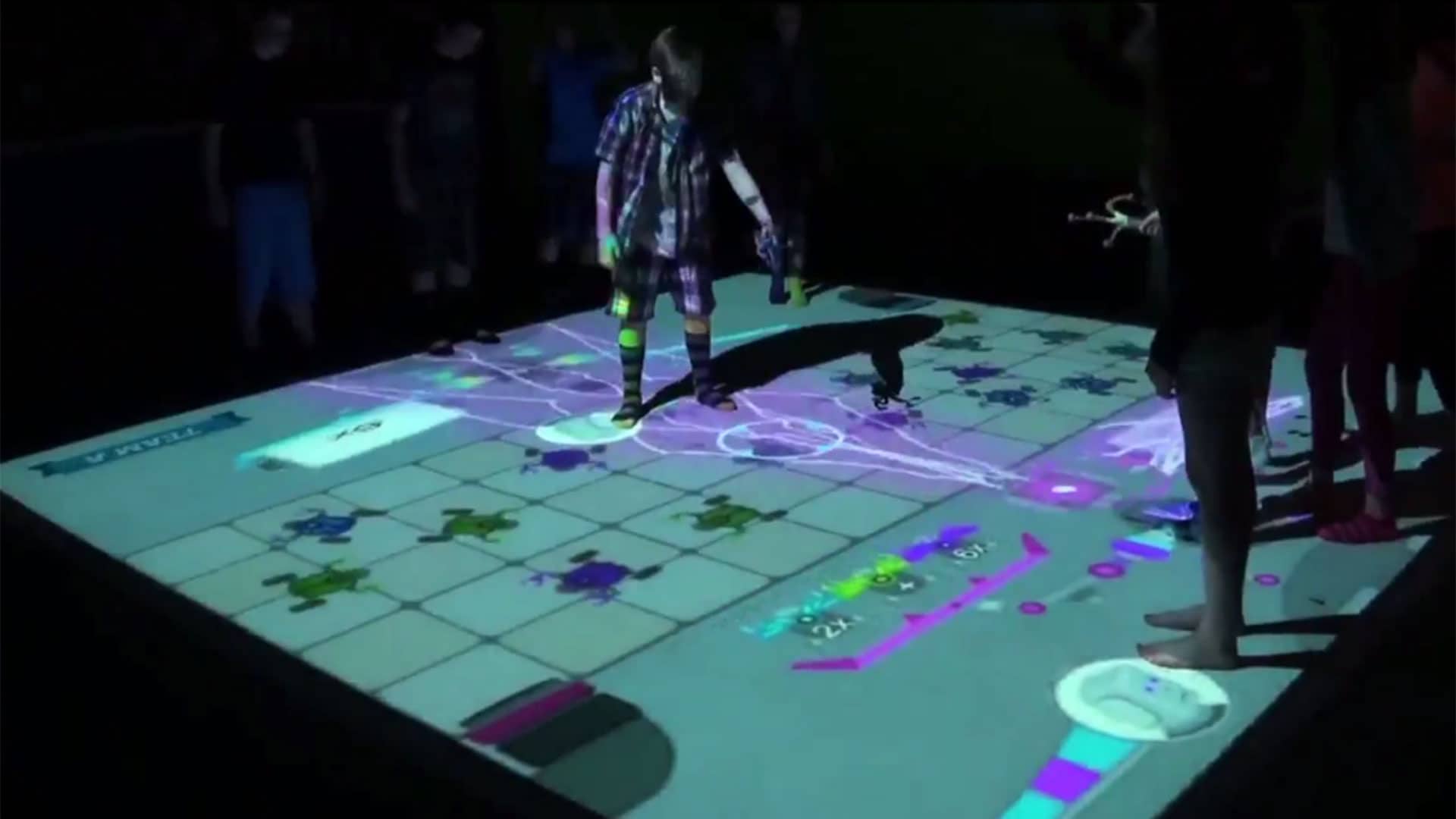Digital Games And Kids – A Different Perspective
Share
The “Wikipedia problem,” which means children turning to the net for ready-made answers, is a new age phenomenon baffling instructors and mentors globally. Nearly equal numbers of teachers recollect technology as an answer as plenty as a problem. While a common notion is that the era hinders the scholars’ ability to think and examine, there’s also a sturdy opinion in choosing video games and virtual gadgets’ capacity to engage college students and beautify mastering via multiple sensory stimulators. Despite the developing subject of the scholars’ deteriorating interest spans, institutions are incorporating them within the method of classroom study.

Children are inherently inquisitive creatures. They are curious to discover new things and examine them via way of learning and experimenting even before they’re subjected to techniques of formal schooling, which includes studying or writing. Science is a subject of experiments and discoveries. The National Science Education Standards emphasize that “science education desires to offer students three forms of medical abilities and understandings. Students need to research the concepts and ideas of technology, acquire scientists’ reasoning and procedural skills, and recognize the nature of technological know-how as a selected form of human endeavor.
Therefore, students need to be able to plot and carry out investigations that check their ideas and apprehend why such explorations are uniquely powerful. Finally, studies show that scholars are more likely to understand and maintain the standards they found this way “. Hence, engaging youngsters in technology education at an early stage is vital.
READ MORE ARTICLES :
Digital video games are more capable to the advantage of college students’ pastimes and attention than another conventional approach of supplying education in a schoolroom. However, some educationists also regard them as culprits of the exponential decline in children’s attention span. The subsequent sections in this text talk about the involvement of children in video games in the tech age, the kinds of video games to be had in the marketplace, and the impact of virtual gaming as getting-to-know aids in lecture rooms.
Gaming and the New Age Kids
The Digital era has extended the horizons of video gaming in the contemporary world. Kids have been subjected to extra complicated and difficult technological surroundings a long way than their counterparts were over half a century back. Youngsters’ involvement in digital gaming results from many full-size adjustments in contemporary society’s lifestyle and way of life.
Easy accessibility of era, dispensable profits because of twin earnings households, and the absence of infrastructure for outdoor sports in many towns are a few fundamental contributors to making display screen games a crucial part of children’s lives. The Centers for Disease Control and Prevention (2010) observed that the simplest 20 percent of the census blocks are within half a mile of a block boundary. Also, the effect of peer strain can not be undermined in those instances of social networking.
The virtual gaming marketplace is one of the quickest-growing segments of the global amusement enterprise. The US is witnessing extraordinary penetration of digital games among kids. In the US, ninety-seven% of teenagers play a few kinds of games regularly. The gaming market has grown manifold in India over the past few years. Hence, educationists must constantly consider digital gaming a learning tool in school rooms. Institutions are also employing innovative methods to leverage the digital benefit for boosting the mastering revel in faculties.
What are Digital Games?
Games have no concrete definition, as they can vary with an individual’s choice and profession. However, games can be defined as a “gadget wherein gamers interact in artificial battle, defined employing regulations, which bring about a quantifiable outcome.” Technology and digitization add new dimensions to video games wherein simulations, interactivity, augmented truth, opportunity fact, collective intelligence, and sensory stimulators include sound and visible effects. Digital video games are also characterized by their portability and endless accessibility. Role-playing video games, simulation video games, and puzzles are some of the most famous digital video games.
In role-playing video games, the player enacts the role of a selected man or woman in a virtual global, moving from one stage to the opposite based on the final results of the earlier stage. RPGs can be unmarried participants, including the dungeons and dragons from advanced days of gaming or multi-participant games along with Diablo III, Xenoblade, Final Fantasy XIII-2, or Mass Effect 3. MMORPGs, or Massive Multiple Online Role-Playing Games, are an extension of the RPGs in which many players interact in an online virtual global. Simulation video games create realistic situations in virtual worlds. The outcome will depend upon the player’s selection-making and responsiveness and maybe intently, just like what may also occur in an actual world inside the same state of affairs.

Widely utilized in education and analysis, simulation video games are also famous because of their unpredictable and personalized results. Flight Simulator X, Live for Speed (LFS), and Need for Speed have been trendy simulation games for a long time. The puzzle style of virtual games includes trouble fixing and analysis with varying levels of a problem depending on the character of the sport. Crosswords and treasure hunt games are primary puzzle video games in physical and virtual shapes.
All types of virtual video games contain the social involvement of players. Some need collaborative efforts to play, even as others can be discussed or analyzed socially. Even though some games are accused of outright violent visible outcomes, a properly designed recreation can accelerate the wandering by motivating, engaging, concerning creativity, and developing a meta-recreation, i.e., social interactions inspired and superior inside or outside the sports. Incorporating virtual gaming into the fundamental schooling framework can cause augmented competitiveness and a multi-dimensional increase in youngsters.
Digital Games in Science Education – Why and Why Not?
The twenty-first century calls for mentors and scholars to integrate technology into the curriculum. Though the final purpose is to advantage the scholars regarding learning and revel in unsupervised, the unorganized or irrelevant utility can lead to finish failure or terrible results. Some of the horrific impacts of virtual games in popularity and in context with schooling are listed below:
Digital video games were going through consistent rebuke for allegedly improving aggression among children and growing a violent streak at an early degree. According to Anderson and Bushman (2001), Children involved in violent video games are likelier to have multiplied aggressive thoughts, emotions, and behaviors and reduced prosocial assisting. Using weapons and being rewarded for being violent is a reason for the enormous difficulty. Digital video games may be addictive for kids and cause them to be physically inactive.
Therefore, digital video games, aside from social networking, are considered for reduced physical pastimes, leading to weight problems in youngsters and postural and skeletal issues. Addiction to video games is likewise recognized as making youngsters socially secluded. Impulsive behavior, melancholy, and increased anxiety tiers are largely attributed to excessive gaming in youngsters. Some studies also recommend that children playing games cannot pay attention for a long span and have decreased interest spans. Children are prone to soaking up socially unacceptable behavior through some digital video games consisting of profanities and unwell-treating the fairer sex. Moreover, a lack of good enough understanding about screening the clothes available online is a growing situation among mothers and fathers. Digital games are taken into consideration as an issue for higher performance in academics.
Students are regularly discovered to skip homework to play games, leading to a deteriorated overall performance at school. However, no matter their popularity as promoters of violence and mayhem, virtual games have been shown to assist kids in researching talents, content, and essential “twenty-first-century” abilities. From digital video games, children can study content (from wealthy vocabulary to technology to history), competencies (from literacy to math too complicated hassle-fixing), the advent of artifacts (from motion pictures to software program code), and structures wondering (how converting one element impacts relationships as a whole).
Strong arguments for a desire to use virtual games as studying aids in secondary education are summarized below:Digital video games contain extreme hand-eye coordination and beautify motor and sensory abilities. Using academician Laird (1985), sensory stimulation theory validates that effective studying occurs while the senses are stimulated. While a few studies display that virtual gaming reduces interest span, there is strong evidence of improved awareness in quick intervals of time. Digital games involve retaining a watch on each element, following regulations, and responding proactively to theven situation.
Complex virtual game assistance is developing problem-fixing and choice-making abilities. Some games also involve logical evaluation of the scenario and sample reputation and improve memorizing, consequently helping the cognitive system. Playing via the regulations teaches children to accept and respect the positive subject stage.





